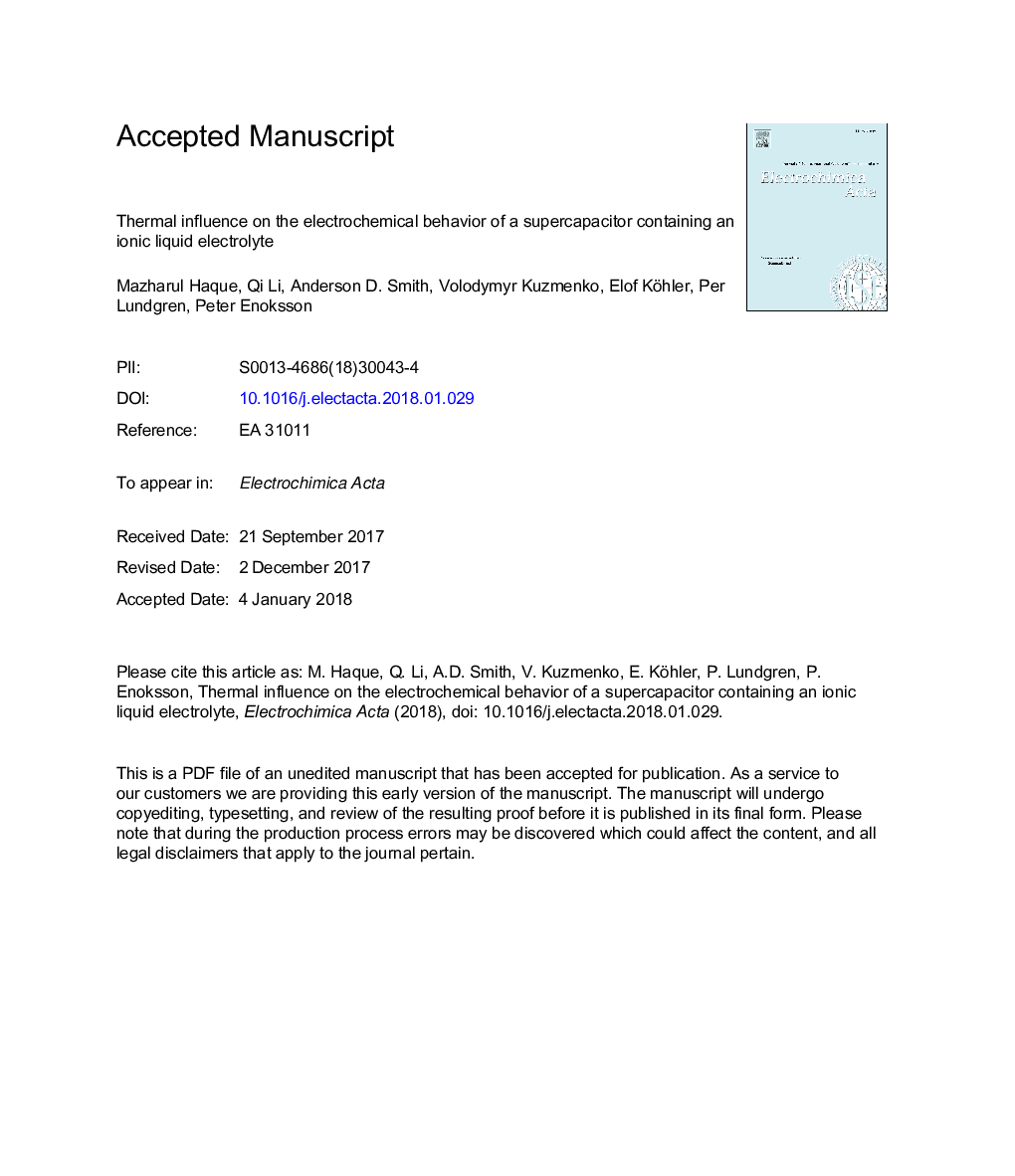| Article ID | Journal | Published Year | Pages | File Type |
|---|---|---|---|---|
| 6604403 | Electrochimica Acta | 2018 | 37 Pages |
Abstract
Emerging demands on heat-durable electronics have accelerated the need for high temperature supercapacitors as well as for understanding the influence of elevated temperatures on the capacitive behavior. In this work, we present a comprehensive study of the thermal influence on a supercapacitor containing 1-ethyl-3-methylimidazolium acetate (EMIM Ac) electrolyte and activated carbon (AC) electrodes. The performance variation as a function of temperature in a range from 21â¯Â°C to 150â¯Â°C reveals that a high specific capacitance of 142â¯Fâ¯gâ1 can be achieved at 150â¯Â°C at a current density of 2â¯Aâ¯gâ1 with a rate capability of 87% at 15â¯Aâ¯gâ1 (relative to 2â¯Aâ¯gâ1). At 150â¯Â°C, equivalent series resistance (ESR) is only 0.37â¯Î©â¯cm2, which is a result of improved ionic conductivity of the electrolyte at elevated temperature. The ESR value of 2.5â¯Î©â¯cm2 at room temperature reflects a good compatibility between EMIM Ac and AC. In addition, a capacitance retention of more than 95% (in the end of 1000 cycles) is maintained up to 120â¯Â°C followed by 85% at 150â¯Â°C. These results confirm EMIM Ac as a suitable candidate for carbon-based high temperature supercapacitors, and the observations regarding the thermal influence on performance metrics e.g. usable operation voltage could be applicable to other energy storage devices.
Keywords
Related Topics
Physical Sciences and Engineering
Chemical Engineering
Chemical Engineering (General)
Authors
Mazharul Haque, Qi Li, Anderson D. Smith, Volodymyr Kuzmenko, Elof Köhler, Per Lundgren, Peter Enoksson,
